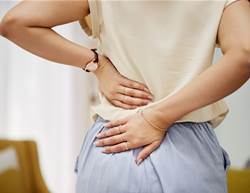You probably don't need scientists to tell you that your metabolism slows with age. The average woman gains nearly a kilo a year during her adult life-enough to pack on 20-plus kilos by her 50s, if she doesn't combat the roller coaster of hormones, muscle loss, and stress that conspires to slow her fat-burning engine. Thankfully, there's a way to help rev it up again. Midlife weight gain isn't inevitable: By eating metabolism-boosting foods and following the path, you'll sleep better, have more energy, feel firmer, and notice your clothes are looser in as little as two weeks. Here's how to increase your metabolism.
Cut kilojoules - but not too much
Sure, losing weight involves cutting kilojoules, but limiting your kilojoule intake too much can deliver a double whammy to your metabolism. When you eat less than you need for basic biological function (about 8,700kJ for most women), your body throws the brakes on your metabolism. It also begins to break down precious, kJ-burning muscle tissue for energy, says dietitian Dr Dan Benardot. "Eat just enough so you're not hungry-a 600kj (150cal)-snack midmorning and mid-afternoon between three meals (about 1,800kJ (430cal) each) will keep your metabolism humming."
Enjoy a hearty breakfast every morning
Eating breakfast jump-starts your metabolism and keeps energy high all day. It's no accident that women who skip this meal are 4 1/2 times as likely to be obese. If nothing else, grab a yoghurt. Or try porridge made with 2 percent milk and topped with nuts for an essential protein boost.
Caffeine is a central nervous system stimulant, so your daily java jolts can rev your metabolism five to eight percent. A 2012 study from Obesity suggests that high-caffeine intake is associated with weight loss through thermogenesis-the way your body maintains heat-and fat oxidation.
Work more fibre into your diet
Research shows that some fibre can rev your fat burn by as much as 30 per cent. Studies find that women who eat the most fibre in foods gain the least weight over time. Aim for about 25 g a day—the amount in about three servings each of fruits and vegetables.
Drink a ton of cold water
German researchers found that drinking 6 cups of cold water a day can raise resting metabolism by about 210kJ (50cal) daily—enough to shed 2.5kg in a year. The increase may come from the work it takes to heat the water to body temperature.
Go organic when you can
Canadian researchers report that dieters with the most organochlorines (pollutants from pesticides, which are stored in fat cells) experience a greater than normal dip in metabolism as they lose weight, perhaps because the toxins interfere with the energy-burning process. Other research hints that pesticides can trigger weight gain. Always choose organic when buying peaches, apples, capsicum, celery, nectarines, strawberries, cherries, lettuce, imported grapes, and pears; non-organic versions tend to have the highest levels of pesticides.
Ramp up your protein intake
Your body needs protein to maintain lean muscle. Add a serving, like 90g of lean meat, 2 tablespoons of nuts, or 250g of low-fat yoghurt, to every meal and snack. Research shows protein can up postmeal kilojoule burn by as much as 35 percent. Eat iron-rich foods It's essential for carrying the oxygen your muscles need to burn fat, says dietitian Tammy Lakatos. Until menopause, women lose iron each month through menstruation. Unless you restock your stores, you run the risk of low energy and a sagging metabolism. Shellfish, lean meats, beans, fortified cereals, and spinach are excellent sources.
Get more vitamin D
This vitamin is essential for preserving metabolism-revving muscle tissue. Get 90 per cent of your recommended daily value (400 IU) in a 3.5-ounce serving of salmon. Other good sources: tuna, prawns, tofu, fortified milk and cereal, and eggs.
Skip the second cocktail When you have a drink, you burn less fat, and more slowly than usual, because the alcohol is used as fuel instead. Knocking back the equivalent of about two martinis can reduce your body's fat-burning ability by up to 73 per cent.
Drink milk
"There's some evidence that calcium deficiency, which is common in many women, may slow metabolism," says Lakatos. Research shows that consuming calcium through dairy foods such as fat-free milk and low-fat yoghurt may also reduce fat absorption from other foods.
Stay active as much as possible
The easiest 1,464kJ (350cal) you'll ever burn: Exercise is obviously important, but regular daily activity known as "NEAT" (nonexercise activity thermogenesis) is equally essential for a healthy metabolism. Small movements such as stretching your legs, taking the stairs, even just standing to talk on the phone increases your energy expenditure and can add up to an extra 1,464kJ (350cal) burned a day.






.png&h=193&w=250&c=1&s=1)

.png&h=193&w=250&c=1&s=1)
